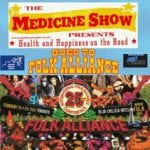SINGING AT A FUNERAL FOR A HOMELESS MAN
I rarely get gigs other than regular old singer/songwriter type things. I don’t do covers. People don’t dance to my songs. And I’ve never written anything that would be appropriate for a wedding or bar mitzvah. So it was a little unusual to get a call from Rocky Bevis last week, from Bevis Funeral Home in Wakulla County.
Rocky was doing some pro bono funeral work for a man (I will need to leave him nameless) from Mississippi who had passed away in Crawfordville, essentially homeless, no family, no friends. In dealing with the man’s personal effects, Rocky had seen that the guy was a prolific poet and songwriter. He was impressed and moved by his devotion to his art and craft, and the all-to-apparent vow of poverty that it had entailed. Rocky wanted to do something special for this guy, and called me to see if I would sing a song or two at his service, knowing that it would probably just be me and nobody else there. He sent me a poem the guy had written called, “The Maiden.” (There was a wonderful play on the words ‘made-of’ and ‘made-by’ and ‘made-in.’) I was genuinely touched. I knew in my bones that my own artistic path could be headed in the very direction this poor fellow’s had led him. I told Rocky I would be honored to sing at the burial.
The directions to the little paupers cemetery in SW Wakulla County were sketchy. I was running a bit late, got very lost, then got some really bad directions at a house trailer from a toothless woman with a yard full of chickens. By the time I got where I was going, the people from the funeral home evidently had left already. Only the backhoe crew was there, and they were eating lunch. I felt badly, apologized for being late, then immediately went to the graveside and looked down.
The cement vault lid was in place. I didn’t know what else to do, so I broke out my guitar, slung the strap over my back and began singing my songs to this man, this poet, whom I had never in my life met.
The workers put down their lunches and began to gather around. I played my heart and soul out for this man who had died alone, with no family or friends. I played like I’ve never played before. And when I thought I was through, the words and melody to “Amazing Grace” somehow entered my consciousness, and I played it with more passion and conviction than any song I had ever sung in my life. And as I played, the workers began to weep. They wept, I wept; we all wept together.
When I finished I packed up my guitar and ambled, sweat-drenched, to my car. Though my heart was heavy, I felt an enormous sense of satisfaction through the connection I had made to the spirit of a fellow artist. As I opened the car door, one of the workers came up to me, tears still streaming down his cheeks. “Man, I just wanted to tell you,” he said. “I never seen nothin’ like what I just seen today. I’ve been putting in these damn septic tanks for over twenty years.”
GP




